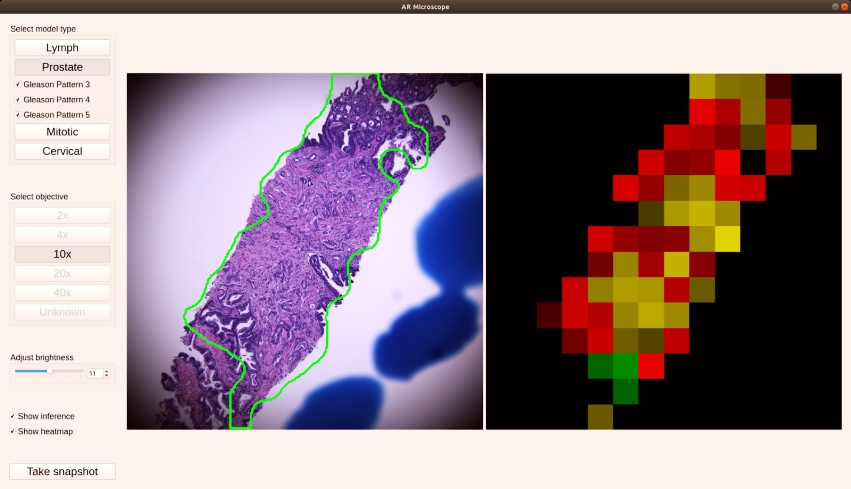Google, in collaboration with the U.S. Department of Defense and other technology partners, is developing an AI-driven microscope to help doctors detect cancer. The device is called the Augmented Reality Microscope (ARM) and will cost between $90,000 and $100,000, a pittance considering what it can accomplish and the fact that smaller labs in particular are struggling with both staff shortages and increasing numbers of cases.
According to press reports, the two project partners have been working on this for years, so far without much fanfare. The technology is still in its infancy and cannot yet be actively used to diagnose patients. But the initial research results are promising and could prove to be a useful tool for medical professionals who don’t have easy access to a second opinion.
Currently, the ARM is being deployed in 13 labs and put through its paces under real-world conditions – to identify weaknesses that could cause problems in the clinical setting. One of the labs is at a Mitre facility near Washington, D.C. Mitre is a nonprofit organization that works with government agencies to address major technology problems.
The device itself looks like a school microscope in biology class. The ARM has a large eyepiece and a support for examining conventional glass slides. In addition, the device is connected to a powerful computer that stores the relevant AI models.
When a slide is prepared and fixed under the microscope, the AI can see where the cancer is located. The outline appears as a bright green line that the pathologist can see through his eyepiece and on a separate monitor. The AI also indicates how bad the cancer is and produces a black-and-white heat map on the monitor that shows the cancer’s boundaries in pixelated form.
Google is responsible for the AI and software development, but there are other technology partners such as Germany’s Jenoptik, which is responsible for developing the hardware.
Aashima Gupta, global director of health care strategy and solutions at Google said the company has now launched four algorithms for the device that can detect breast cancer, cervical cancer, prostate cancer and mitosis. According to Gupta, neither Google employees nor Google infrastructure have access to this data, plus the data is highly and end-to-end encrypted, Gupta said.
As part of a study, the AI algorithm was found to work quite well for breast cancer in a wide range of samples, with extensive further testing needed for other cancers.
The potential for healthcare is enormous, but it also carries a lot of risks. Cancer detection using AI will revolutionize the way cancer is diagnosed from the ground up, according to David Jin, the study’s initiator and deputy director for AI assessment at the U.S. Department of Defense’s Chief Digital and Artificial Intelligence Office.
“AI is here, and it will continue to evolve” the developers are convinced. “It’s not about being afraid of these technologies, it’s about using them in a way that best fits our medical and health needs.”
Photo: U.S. Department of Defense

